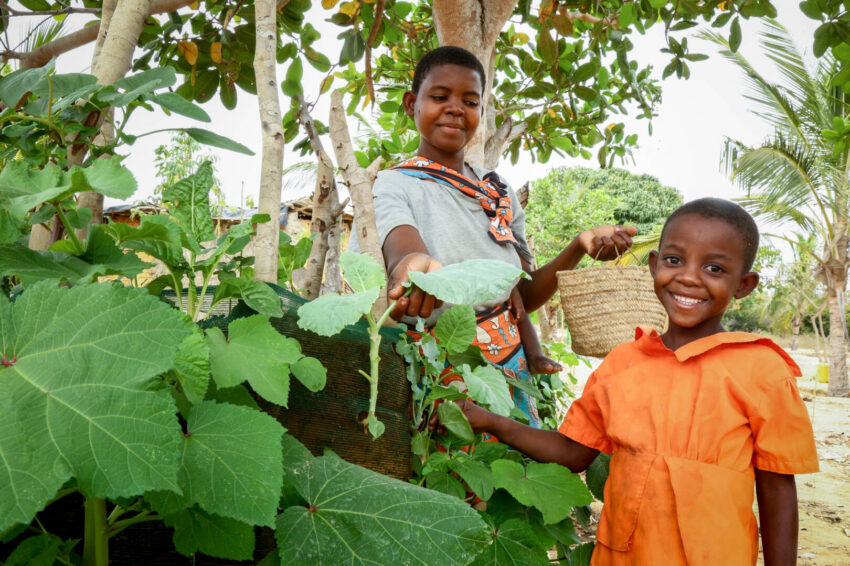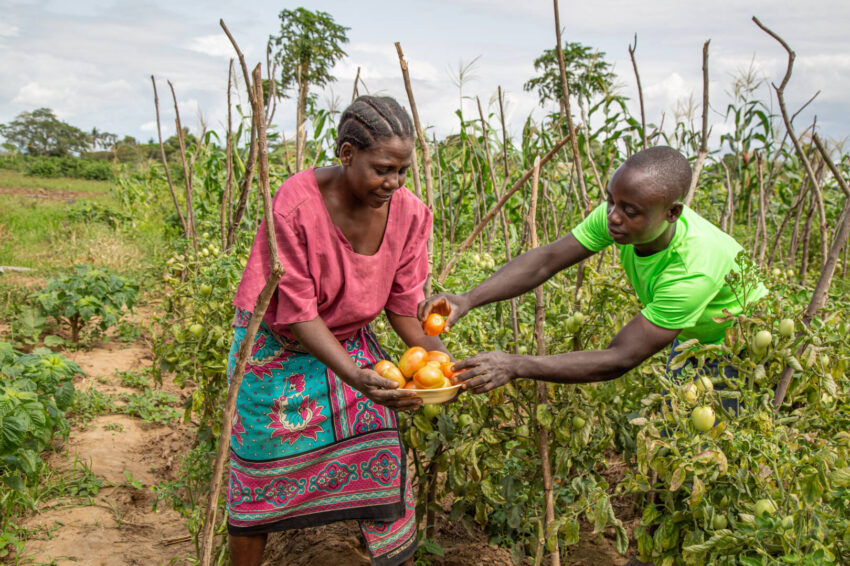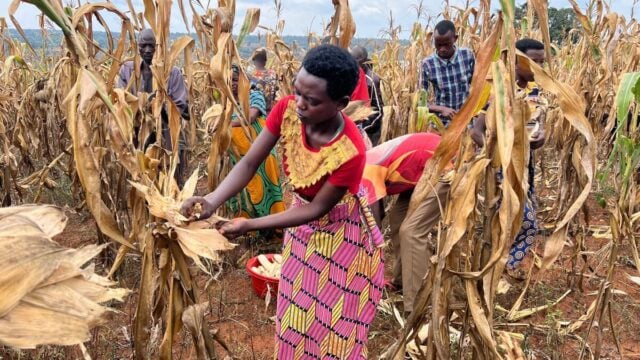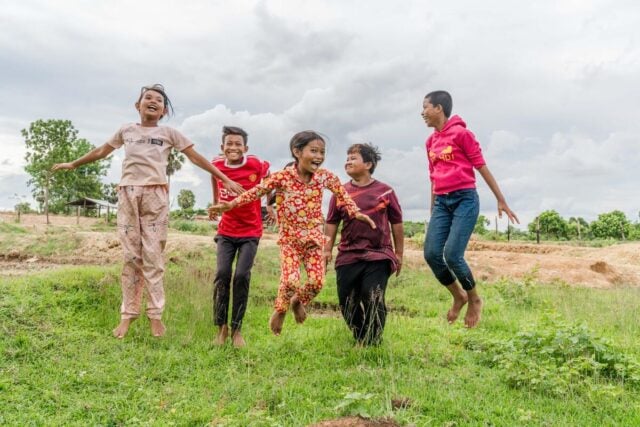In the rural Kenyan community of Marafa, 6-year-old Beatrice Pendo stands with a radiant smile at the edge of her family’s garden. Her mother, Margaret, is busy harvesting cassava, cowpeas, green peas, and spinach.
“I like eating vegetables because they are sweet,” says the child, who prefers to go by Pendo, which means “love” in Swahili. “My best meal is sima (cornbread) served with fried vegetable[s]. My mother gives me more because she says I need to grow big to help her water the vegetables.”
Pendo is thriving because of child sponsorship–funded programs in her community. Her neighbor, 14-year-old Maria, a World Vision sponsored child—who also sports a big, bright smile—has branched off to cultivate her own fruits and vegetables.
Their flourishing kitchen gardens are a living testament to their hope against the spread of hunger.
In Marafa, sponsorship builds resilience against hunger. Because of World Vision’s community-focused solutions, for every child you help, four more children benefit, too. With more than 3,300 children sponsored in the community through World Vision, over 13,200 more children are being cared for.
Through sponsorship, Maria’s younger sisters, Eunice and Shaleen, also have been spared the ravages of malnutrition, which remains a threat to millions of Kenyan children under 2. When not addressed early, the effects of malnutrition are damaging and can be irreversible.
“Before this garden was planted, it was difficult to get fresh vegetables because this area is dry, but now, we enjoy eating the vegetables—especially my 8-month-old sister, Shaleen,” says Maria. “From the skills of maintaining a kitchen garden, I decided to try planting bananas, and I am happy because they are doing well.”
Despite Marafa’s proximity to the Indian Ocean, the region has suffered from drought and critical water shortages.
To address this challenge, World Vision has drilled boreholes to help people in Marafa access groundwater. In 2018, we extended three main water pipelines in Kenya’s Kilifi County. We also constructed and connected 19 automated water kiosks to the pipelines that now help more than 12,800 people access clean water.
Pendo’s mother, Margaret, also draws from those waters to feed her garden. “This project has helped me a lot; nothing makes me happier than the ability to provide for my children,” says Margaret. “Food was not regular [before] because I had to buy and sometimes borrow from neighbors. World Vision brought me this garden and cassava that is drought-resistant to plant. The yield is good and now my life is better because I have enough vegetables to eat.”
In neighboring communities, sponsorship is helping cultivate a new generation of farmers.
Emma is one of 540 people who are enrolled in a World Vision savings group. Through the program, farmers are trained in basic financial literacy—including how to save and invest—and families increase their food security through agriculture training and support, and financial services for business development.
With her earnings, Emma says she’s been able to pay for her two children’s future education.
“World Vision has supported us by providing resources and training,” she says. “I cultivate vegetables and now, I have ventured into banana farming. I decided to farm bananas because the price is good at the market and my children love them too.
Ramsey, Emma’s 5-year-old son, couldn’t agree more. “I like mangoes and bananas, and that is why I like going with mum to the farm,” he says. “I want to grow tall so that I can reach the fruits when she is busy at the market.”
For Ramsey and other children, like Pendo’s and Maria’s sisters, reaching their fullest potential is now within their grasp.



